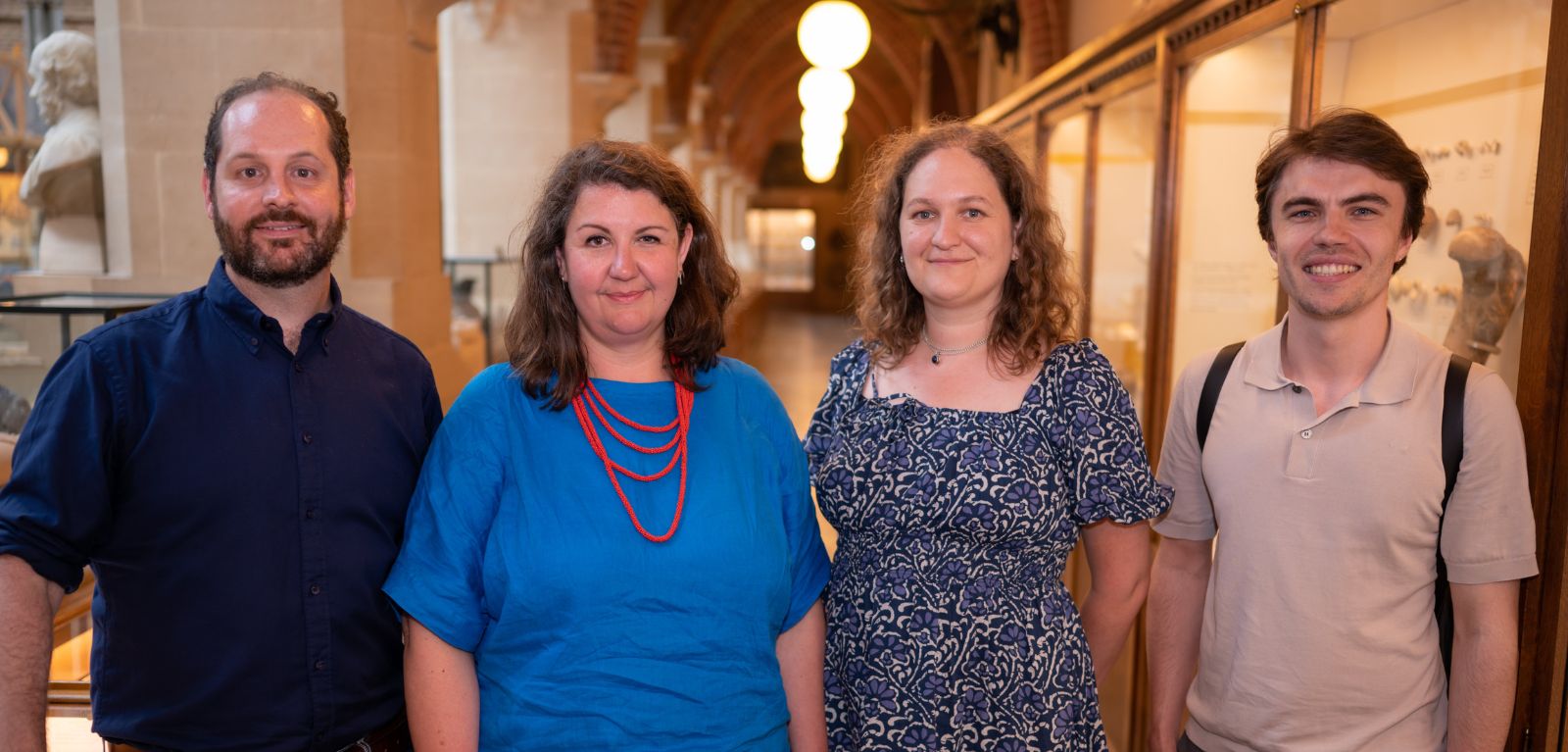Queen's-led research explains global rise in atheism and shows atheists outnumber theists in the UK
An interdisciplinary team of researchers, led by Queen’s, has launched interim results of a landmark global project ‘Explaining Atheism’, which shows that the UK now has more atheists than theists and explains why atheism has grown across the globe.

The research team found that the common notion of the "purposeless unbeliever," lacking a sense of ultimate meaning in life, objective morality, and strong values is not accurate, challenging the stereotype that atheists lead lives devoid of meaning, morality, and purpose.
The ‘Explaining Atheism’ project is led by Principal Investigator, Professor Jonathan Lanman from the School of History, Anthropology, Philosophy and Politics at Queen’s, Dr Lois Lee from the University of Kent and Dr Aiyana Willard from Brunel University of London; working in collaboration with colleagues Dr Connair Russell from Queen’s; Professor Stephen Bullivant from St Mary’s University, Twickenham and; Dr Miguel Farias from Coventry University; and a number of additional international researchers.
The project was funded by the John Templeton Foundation and ran over a three-year period.
Professor Lanman from Queen’s explained: “Our large cross-cultural surveys reveal that while many factors may influence one’s beliefs in small ways, the key factor is the extent to which one is socialised to be a theist. Many other popular theories, such as intelligence, emotional stoicism, broken homes, and rebelliousness, do not stand up to empirical scrutiny.”
Dr Lee from the University of Kent said: “The UK is entering its first atheist age. Whilst atheism has been prominent in our culture for some time – be it through Karl Marx, George Eliot, or Ricky Gervais – it is only now that atheists have begun to outnumber theists for the first time in our history."
The research team surveyed nearly 25,000 people from across six countries (Brazil, China, Denmark, Japan, UK, and USA) around the world to find out why people become atheists and agnostics. They also bring together converging results from the British Social Attitudes Survey and World Values Survey to show the UK now has a relative majority of atheists.
The researchers also used the results from their previous project, Understanding Unbelief (2017-2021), to provide a more detailed picture of the beliefs and values of atheists and agnostics.
Other key findings:
-
Common explanations for why people believe in God or not, such as intelligence, fear of death, or need for structure, have little empirical support.
-
The strongest influences on belief are parental upbringing and societal expectations regarding belief in God.
-
While anti-religious parents do not substantially impact whether their children believe in God, they do strongly influence whether their children are morally opposed to religion.
-
Nonbelief in God does not necessarily rule out belief in other supernatural phenomena, as most atheists and agnostics express some type of supernatural belief.
-
Most atheists and agnostics endorse objective moral values, human dignity, and inherent rights, as well as a "deep value" for nature, at similar rates as the general population.
-
Atheists and agnostics are similar to the general population in seeing "family" and "freedom" as very important for finding meaning in the world and in their own lives.
Professor Lanman from Queen’s commented: “This project helps counter negative stereotypes and stigma towards atheists and theists alike. The common claim among some religious commentators that people become atheists because of immorality and rebellion, or broken homes is not true. Similarly, the common claim among some atheist commentators that individuals become or remain theists because they are less intelligent or emotionally weaker than others is not true.”
Dr Willard from Brunel University of London added: “Such claims are used to stigmatise and harm individuals in our societies who happen to have different positions on the existence of God or gods. Our research demonstrates that these claims are false. We hope that this understanding can be utilised by the public to combat harmful stereotypes.”
The ‘Explaining Atheism’ research findings were launched during an event at Conway Hall in London on Tuesday 1 October 2024 attended by leaders from politics, education, and media.
For more information on the project, please visit: https://www.explainingatheism.org/
